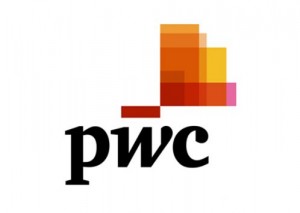The South West will be among the UK’s fastest-growing regions next year, according to new research by global accountancy group PwC – although the rate of 1.2% will be significantly below its long-term average rate of around 2%.
PwC’s latest UK Economic Outlook forecasts that the UK economy will achieve growth of 1.1% next year against 1.2% this year. 
The South West’s slightly better performance puts it alongside the South East and Scotland in terms of regions performing at or above the UK average.
PwC forecasts that all 12 UK regions will achieve modest but growth in 2019 and 2020.
According to the report, economic growth has slowed over the past two years primarily due to a dampening of business investment, resulting from both a lack of clarity over Brexit as well as heightened global trade tensions.
Although consumer spending has continued to drive the UK economy, supported by recent rises in real incomes, a cooling housing market coupled with slower jobs growth means there is likely to be only moderate consumer spending growth of around 1.2% in 2019 and 1.4% in 2020.
PwC West and Wales regional leader John-Paul Barker, pictured, said: “It’s good to see that the South West is projected to be among the top performers among the UK regions, but the differences between how it is expected to perform versus the UK average growth rate are small.
“But it’s not just the financial performance of a region that’s interesting to highlight. Bristol, Swindon and Plymouth are all performing strongly in our latest Good Growth for Cities Index so it’s encouraging to see the South West delivering on a number of fronts.” 
PwC chief economist John Hawksworth added: “UK economic growth is likely to remain choppy throughout the rest of this year and in early 2020. However, there could be a modest bounce in business investment later in 2020 if the UK achieves an orderly Brexit, but the uncertain global economic outlook could hold back a stronger recovery in investment next year.
“Any potential weakness in private sector spending in 2020 should be offset at least in part by stronger trends in government spending. Both major political parties have shifted away from austerity, which is likely to support growth in 2020, irrespective of the outcome of the forthcoming general election. But this will also leave a bigger budget deficit to deal with in the longer term.”
The UK Economic Outlook forecasts that most industry sectors can expect relatively modest growth in 2019-20, though short-term trends remain dependent on how events develop around Brexit.
The distribution, hotels and restaurants sector remained strong in the first half of 2019, but a slowdown is expected next year, whereas the weakened business services and finance sector could enjoy a modest recovery in 2020 assuming an orderly Brexit can be achieved.
The manufacturing and construction sectors have experienced considerable volatility in recent years and are unlikely to see sustained recovery until there is clarity on both Brexit and the global trade outlook.
The report says that while inflation has fallen back below the Bank of England’s 2% target in recent months, real earnings have started to grow again at a relatively strong pace.
Although this upward trend is expected to continue into 2020, it would be difficult for strong real wage growth to be sustained on a longer-term basis unless productivity also picks up.



















